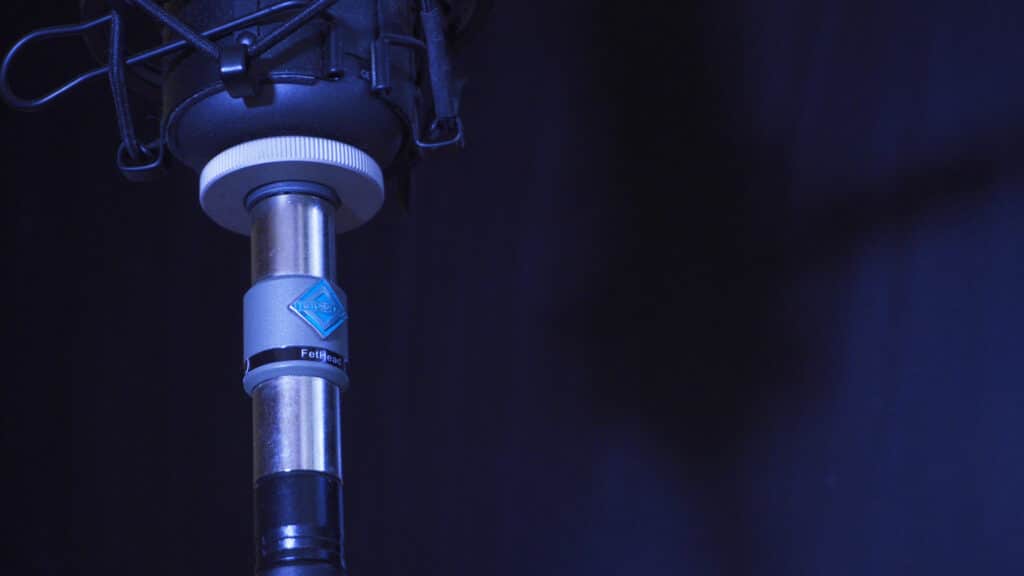Triton Fethead is an in-line preamplifier designed to give an additional 27dB clean gain boost to dynamic or ribbon microphones by converting phantom power into gain. Fetheads are mainly used to drive demanding dynamic microphones but serve other purposes as well.
I’ve been happily using my Fethead for the past three years now, so let’s see what it’s good for and whether it has any flaws.

How does Triton Fethead work?
Fetheads work by converting 48V phantom power, produced by an interface, into an additional 27dB clean gain. At the same time, it doesn’t allow 48V phantom power to reach the microphone. That’s is important because dynamic microphones normally don’t use 48V phantom power.
Fetheads use Class A JFet amplifier that is advertised as an ultra-low noise amp and in my experience it is.
How does Triton Fethead attach?
Fetheads have 3-pole female XLR input which directly attaches to the XLR microphone and 3-pole male XLR output which attaches to XLR cable. Fetheads don’t require any additional gear to be implemented and the installation is very easy.
What’s Triton Fethead good for?
Triton Fethead is a tool mainly used to provide an additional gain to either dynamic or ribbon microphones.
Dynamic and ribbon microphones demand significantly more gain to drive them at normal audio levels compared to condenser microphones. Therefore, quite often budget audio interfaces with built-in pre-amps struggle to drive dynamic and ribbon mics.
Fethead gives a 27dB boost to the existing gain provided by your pre-amp. This allows driving even the most gain-hungry microphones such as Shure SM7B, Shure SM58 or Rode Procaster at normal audio levels without overburdening your pre-amp and without introducing any pre-amp noise.
Fethead allows to use condenser and dynamic microphones simultaneously
Condenser microphones require phantom power while dynamic microphones don’t. Due to that, if you have an audio interface with two XLR inputs, normally you wouldn’t be able to use dynamic and condenser microphones simultaneously on the same audio interface. By providing 48V phantom power to your dynamic microphone you would risk damaging it.
However, fethead shields dynamic microphones from 48V phantom power and allows you to use both dynamic and condenser microphones simultaneously on the same audio interface. A very useful feature if you have two different mics and want to record a podcast.
I’ve tried and tested it with my Rode NT1 condenser and Rode Procaster dynamic microphone, it worked great.
Does Fethead affect how your audio sounds?
Besides making it sound louder, I haven’t noticed a significant difference when using a fethead with my Rode Procaster mic. However, I’ve seen some people claiming that fethead improved high-end frequency response and added more clarity to their audio recordings when used with SM7B microphone.
Also, the manufacturer claims that Fethead makes some microphones respond better over a broader frequency range.
Fethead build quality
Fethead is all metallic and seems to be very sturdy. I’ve constantly used my fethead for the last three years without any issues. It’s also very small and lightweight, perfectly suitable for travel and doesn’t take much space at home.
Pros & cons of Fethead

Pros
- Good for travel – Fethead is about 6cm (2.5inch) in length making it easy to carry
- Nice design – Since Fethead is so small it’s almost not noticeable on a mic and takes no extra space
- Clean gain – 27dB gain boost is very clean and introduces no extra noise
- Affordable price – Compared to its competition Fethead is a good value for money
- Easy installation – Installed with two pushes
- Simultaneous use of dynamic and condenser mics – Allows to use dynamic and condenser microphones simultaneously on the same audio interface.
Cons
- Suitable only for one mic at a time – If you have two dynamic microphones that you want to use with the same audio interface, you will have to purchase a Fethead for each.
Alternative products similar to Triton Fethead
There are some alternative products to Fethead, however, none of them seem to trump over:
- McBoost boosts gain by 25dB and sells for $200
- Cloudlifter CL-1 boosts gain by 25dB and sells for $149
- SS-1 boosts gain by 27dB and sells for $75
- The Durham MKII Mic Booster boosts gain by 20dB and sells for $65
